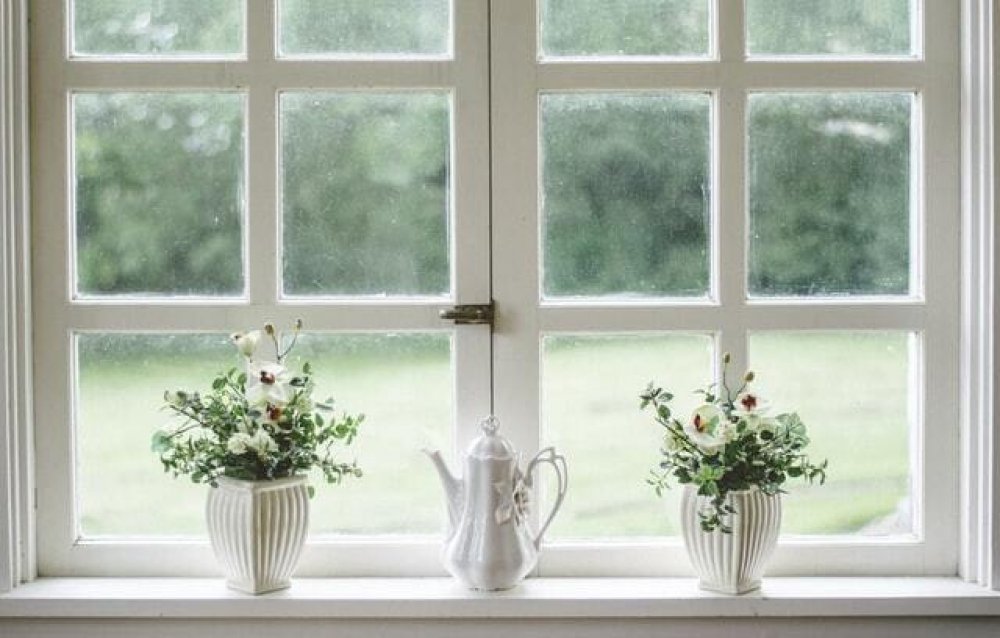Common Causes Of Mold On Windows And How To Prevent It
Central Florida homeowners are lucky to live in the Sunshine State and enjoy good weather all year long. But although the climate can be great, humid weather is the main contributor to mold growth with other issues inside people’s homes.
Windows help prevent moisture from entering your home, but they capture all the humidity and dampness from the outside. Unfortunately, when homeowners do not treat excessive moisture on their windows, mold grows fast. Florida’s humidity levels are always above 70% all year long. This fact alone could guarantee the existence of mold.
Usually, mold grows around windows, windowsills, leaks in roofs, water pipes, and places exposed to water damage or flooding. Removing mold from your windows is critical. That is because if you don’t remove it quickly, it can easily spread throughout your home. And this can trigger health issues for the home residents.
Mold growth can lead to infections, allergies, asthma, and other breathing problems. So, it is better to prevent mold from growing on your windows and save your loved ones from health complications, especially during a pandemic. Fortunately, in this post, our company will help you understand more about what causes mold on your windows and how to prevent it.
What Causes Mold On Your Windows?
Mold growth on windows begins with damp organic matter, meaning dust, bacteria, dead bugs, pollen, microscopic particles, hair, and even dead skin cells. Once these particles get wet and then exposed to warmer temperatures, mold grows. Mold can grow in different parts of your window structure. That includes the window glass, the panes, the window frames, and the tracks.

How Does Mold Grow In Window Seals?
The main reason for mold growth is the combination of moisture with dust or particles on the windows. So how do you identify the areas on your windows that you need to clean and check for moisture?
The window seal is one of them. Sometimes, the window seals breakdown or deteriorate after years of installation, capturing all sorts of moisture and dust inside. In Florida, most new construction infrastructures may not experience these issues on their window seals, but older infrastructures are likely to have broken window seals.
How Does Mold Grow In The Window Frame?
Window frames can easily capture dust and trap moisture allowing mold to grow on your windows. Aluminum and wood-framed windows accumulate dirt between the glass and the frame. Damp wood has a higher chance of growing mold, given the humidity it can trap for long periods. Cleaning your window frames every week can help prevent mold from growing on your windows. If you live in Florida, you cannot afford to skip this weekly cleaning.
How Does Mold Grow In The Window Tracks?
Moisture and debris will also accumulate inside the window tracks. Window tracks are perhaps the simplest spot for dirt, insects, and other particles to collect. Water and moisture deposits inside the tracks too. The good thing about window tracks is that they are easily visible to the naked eye and quick to clean.
Keep a close eye on all window tracks, as these can accumulate more moisture and dirt than the frames. Be sure to clean up your window tracks weekly as well. You can use a regular brush (and a vacuum-recommended) to remove dust and debris from the tracks. Check for holes on the window tracks as these allow water to drain safely; be sure these holes are not covered with debris so water can flow out.

How To Prevent Mold From Growing On Your Windows?
- If you are having mold and foggy windows at home, you may want to consider replacing your old windows with energy-efficient impact windows. Floridians not only deal with humid weather, but they also face hurricanes and severe storms every year. New energy-efficient impact windows will help to keep the temperature of your home cool and less humid.
- Try to keep humidity levels at home below 60% by either using your air conditioning or dehumidifiers. Although you cannot control Florida weather, you can help control mold growth in your windows by regulating the indoor humidity levels.
- Consider purchasing a dehumidifier for areas with higher humidity levels. For example, the laundry or kitchen area may have more humidity than any other room in your home.
- Improve Ventilation at home: take advantage of your AC and your fans throughout the year. We know that Florida weather is humid even in the winter months. Cooler air helps spread moisture around your home and reduce build-up humidity in “one place”.
- Clean your windows regularly; do not let dust and bacteria accumulate on your windows as it will become more difficult to remove. If you need assistance, hire a professional and get the job done.
- Remove any houseplants from your home. Although indoor plants are associated with environmental benefits, plants contribute to the moisture inside your home. So, if you have multiple plants inside, you may want to stick a few small plants inside.
Keep Your Windows Clean
If mold has ruined the functionality of your windows or compromised your health (or your loved one’s), the first thing you should do is contact a professional mold removal company. Once you complete this step, you need to follow up with a cleaning/maintenance routine for your windows to prevent mold from growing again. If there is a need, please consider investing in high-quality energy-efficient impact windows. These will be the best option for your Florida home protection.


